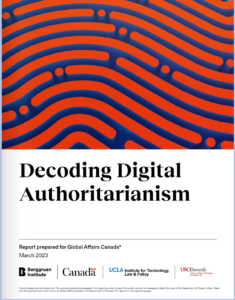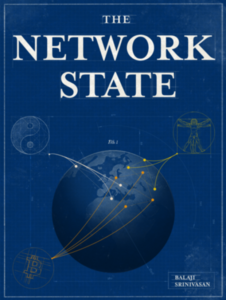 Digital technologies hold tremendous potential to enhance societal wellbeing, including the protection and promotion of democracy and human rights, notes Harvard’s Ziyaad Bhorat.
Digital technologies hold tremendous potential to enhance societal wellbeing, including the protection and promotion of democracy and human rights, notes Harvard’s Ziyaad Bhorat.
However, citizens, political leaders, and states are increasingly concerned about the way in which digital technologies can be used to curtail freedoms and oppress foreign and domestic population groups in liberal democratic and autocratic states alike, he adds in Decoding Digital Authoritarianism, a new white paper from the Berggruen Institute.
Digital authoritarianism has emerged as a policy-relevant description of this concern, but suffers from a lack of i) conceptual clarity, ii) relevant stakeholder consensus on areas of focus, and iii) strategic policy guidance for effective response, it adds:
Taking the traditional understanding of digital authoritarianism as a point of departure, the institute tasked 9 experts from a variety of regional focus areas and academic disciplines – inter alia comparative and international law, political economy, data studies, and media & communications – with offering their views on what digital authoritarianism means, what empirical factors drive it, and how we can develop theory around it that allows for a more global, inclusive conversation to address the various ways it might manifest in societies.
 With respect to artificial intelligence (AI), for instance, there cannot be high-quality data and ethical AI systems without respect for human rights—including labor rights, one contributor suggests. Therefore, the industry should strive to respect fair-work principles, enable worker feedback in the data-production pipeline, and support worker-centered initiatives backed by standards and effective governance. These initiatives allow for the broader considerations necessary to democratize digital spaces and entities, including platforms, and reduce power concentration among a few entities.
With respect to artificial intelligence (AI), for instance, there cannot be high-quality data and ethical AI systems without respect for human rights—including labor rights, one contributor suggests. Therefore, the industry should strive to respect fair-work principles, enable worker feedback in the data-production pipeline, and support worker-centered initiatives backed by standards and effective governance. These initiatives allow for the broader considerations necessary to democratize digital spaces and entities, including platforms, and reduce power concentration among a few entities.
In “Whose Internet? Authoritarianism and the Struggle Over Governance,” UCLA’s Kal Raustiala provides a comparative international law perspective on how California versus China models – multistakeholder versus multilateral models – of internet governance are playing out in differing geopolitical strategic ambitions.
 The Network State is a nascent political project with the potential for creating a form of technocratic despotism, adds Morshed Mannan of the European University Institute. In short, it institutes a governance system that, at first blush, provides near-limitless choice but in reality enables the unchecked exercise of power by technical experts, including in abusive ways. In lieu of exit-based governance and opt-in consent, he stresses the need for voice-based, multi-stakeholder governance for digital communities.
The Network State is a nascent political project with the potential for creating a form of technocratic despotism, adds Morshed Mannan of the European University Institute. In short, it institutes a governance system that, at first blush, provides near-limitless choice but in reality enables the unchecked exercise of power by technical experts, including in abusive ways. In lieu of exit-based governance and opt-in consent, he stresses the need for voice-based, multi-stakeholder governance for digital communities.
A recent report from the National Endowment for Democracy’s International Forum discusses how to establish democratically accountable rules and norms that harness the benefits of artificial intelligence-related technologies, without infringing on fundamental rights and creating technological affordances that could facilitate authoritarian concentration of power.







